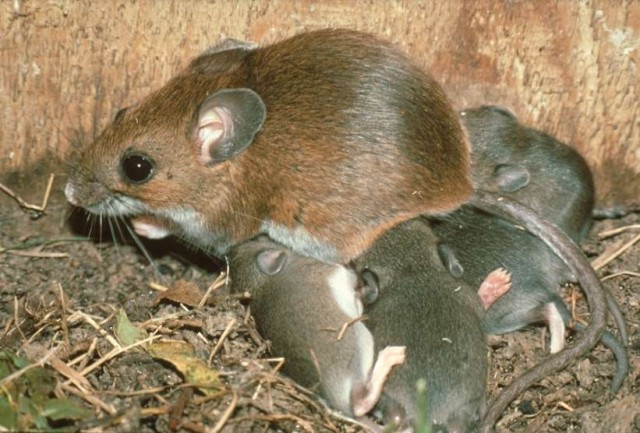In mice, fear learned by parents is transferred to their offspring
Ars Technica » Scientific Method 2013-12-02

The idea that organisms can stably inherit characteristics they acquire during their lifetimes was discarded a long time ago; the fact that it doesn't seem to happen was a big strike against the pre-Darwinian idea about evolution. But over the last few decades, that idea has been making a bit of a comeback. We've identified a few forms of epigenetic inheritance—primarily chemical modifications of DNA—that can be changed during the life of an organism but still passed down to its progeny. There's clear evidence that this sort of inheritance is used in plants, and there are a few hints that it could influence significant traits in animals.
Yesterday, Nature Neuroscience published a paper that provides the strongest evidence yet that an acquired trait can be passed down for several generations in mice. Animals that were trained to associate a specific smell with pain produced progeny that also were sensitive to the smell—even when their entire role in producing the next generation was limited to being a sperm donor.
The paper itself inadvertently indicates just how radical this idea is. Early in its introduction, the authors (Brian Dias and Kerry Ressler) write, "An important, but often ignored, factor that influences adult nervous systems is exposure of parents to salient environmental stimuli before the conception of their offspring." Well, yes, it has been ignored. But that's largely because nobody had any evidence that it actually happens.
Read 10 remaining paragraphs | Comments




